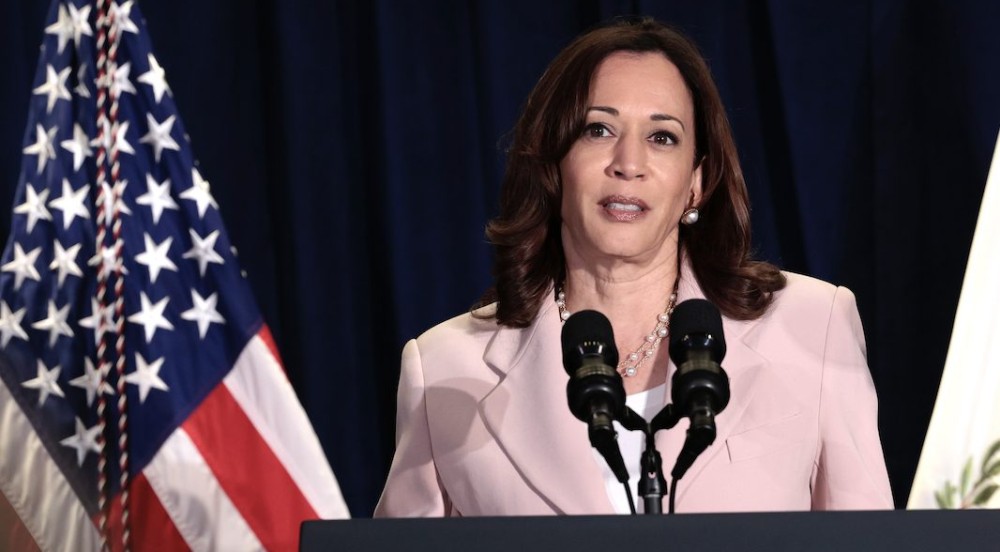Vice President Kamala Harris is not taking the fight to uphold Roe v. Wade sitting down. This week, the former U.S. Senator convened constitutional law, privacy and technology experts to discuss what is at stake if Roe v. Wade is overruled.
“I think we all believe and know that our nation was founded on certain principles that we hold dear: principles of freedom, liberty, and self-determination,” the Vice President told attendees. “And I do believe that all of those principles are at stake when we look at the leaked draft opinion about what this decision may end up being.”
On May 3, Politico broke the news that the Supreme Court of the United States, in a draft opinion, had voted to overturn abortion rights. Since then, Vice President Harris has been on a crusade to fight the decision. Last month Harris convened Black journalists to discuss the matter. And earlier this month, she brought together faith leaders to talk about the path forward. On June 2, the Vice President released a video highlighting what is at stake for women and the country as a whole. The restriction of freedoms, the restriction of rights is a matter Harris is deeply concerned about.
Tuesday’s roundtable was an opportunity for the administration to hear from law professors at NYU, Harvard, UC Irvine and the University of Michigan on fundamental issues that could arise once SCOTUS makes its decision. Jennifer Weiss-Wolf, of the Brennan Center for Justice and Ms. Magazine, also attended to offer insight as one of the leading voices for equitable menstrual policy in America. Chief among the administration’s concerns is preparing Americans for the consequences of the decision.
While the decision to overturn Roe v. Wade is often talked about in terms of abortion rights, pro-choice advocates maintain that overturning this decision could be a slippery slope. In Harris’ roundtable remarks, she noted that restricting this fundamental freedom could challenge the use of birth control methods, the ability to undergo IVF and people’s right to marry the same sex. Harris also fears that the decision will create a path for states to impede on Americans’ right to privacy and use tech to increase government involvement in monitoring women’s reproductive systems and searches for reproductive health facilities.
“I do believe that overturning Roe could clear the way for challenges to other fundamental rights, including the right to use contraception and—and same-sex marriage,” Harris said. “And I think it’s a very important point to make that many of the states that have passed trigger ban laws are also the states that are passing laws to restrict trans rights, gay rights and the freedom to vote.”













